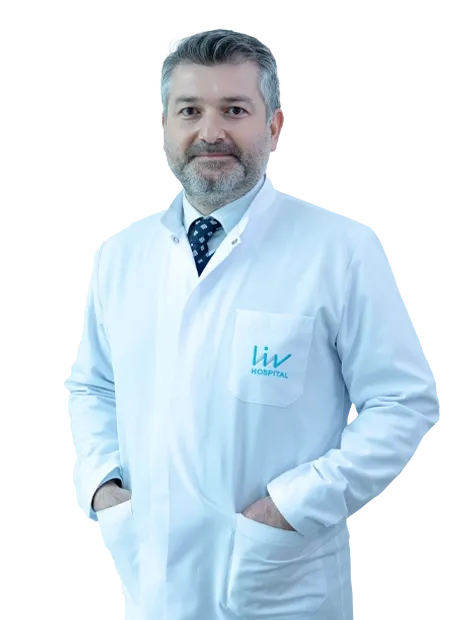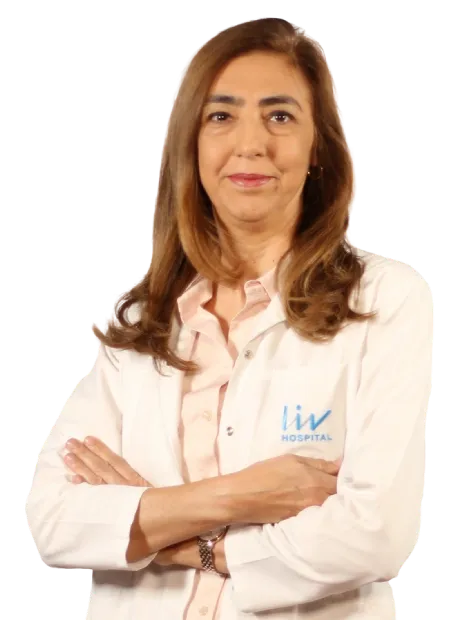
Getting a breast cancer diagnosis is tough, both emotionally and financially. The costs of treatment and care can be very heavy for patients and their families.
Studies show that cancer patients face big financial challenges. Treatment can affect their overall health and well-being. At Liv Hospital, we offer full support, including financial help, to those with breast cancer.
We have 13 trusted programs that give immediate financial aid. These programs help reduce the financial stress of breast cancer treatment. They include Susan G. Komen grants and national aid funds, showing our commitment to patient care.
Key Takeaways
- Financial assistance is available for breast cancer patients to help with treatment costs.
- 13 programs are highlighted to provide immediate financial help.
- Liv Hospital is committed to supporting international patients with full care.
- Programs include Susan G. Komen grants and national aid funds.
- Financial assistance can greatly lessen the burden on patients and their families.
The Financial Impact of Breast Cancer

Breast cancer hits patients and their families hard in many ways. It brings emotional and physical pain, along with big financial worries.
Treatment for breast cancer includes many services like surgery, chemotherapy, and radiation. Each one adds to the cost, making it one of the priciest cancers to treat.
Medical Treatment Costs
Medical costs for breast cancer patients are high. These costs include:
- Surgery: Procedures like mastectomies or lumpectomies.
- Chemotherapy: Sessions given orally or through an IV.
- Radiation Therapy: External or internal radiation.
- Targeted Therapy: Medications that target cancer cells.
- Hormone Therapy: Treatments that stop cancer growth by blocking hormones.
| Treatment Type | Average Cost | Insurance Coverage |
|---|---|---|
| Surgery | $10,000 – $20,000 | Partially Covered |
| Chemotherapy | $5,000 – $10,000 per cycle | Partially Covered |
| Radiation Therapy | $8,000 – $15,000 | Partially Covered |
Indirect Financial Burdens
There are also indirect costs for breast cancer patients. These include:
- Lost Income: Taking time off work for treatment can reduce income.
- Travel Expenses: Costs for traveling to and from treatment centers.
- Childcare and Household Help: Expenses for managing household chores and childcare during treatment.
It’s important to understand these financial challenges. By knowing both direct and indirect costs, we can better support breast cancer patients. This includes helping them find financial assistance for breast cancer and guiding them through the financial side of their care.
Finding Breast Cancer Help: Understanding Your Options

Breast cancer can be very expensive. But, there are many ways to get help with these costs. Patients often have to look hard to find the support they need.
Types of Financial Assistance Available
Many groups help breast cancer patients with money issues. For example, Susan G. Komen helps with treatment costs and other cancer-related expenses. Other groups might help with medicine, travel, and living costs.
There are many kinds of financial help out there. Some programs are for patients getting certain treatments or with specific types of cancer. It’s important for patients to look into these options to find the right help for them.
Determining Your Specific Needs
To get the most from financial help programs, patients need to know what they need. They should look at their money situation, treatment costs, and where they need help.
Patients should think about their insurance, what they have to pay out of pocket, and indirect costs like lost work or travel for treatment. Knowing these things helps patients find the best help for them.
It’s also key for patients to talk to their healthcare providers and social workers. They can give great advice and help find financial aid. Many groups and foundations have special help for breast cancer patients.
Susan G. Komen Financial Assistance Programs
Getting a breast cancer diagnosis can be tough on your wallet. But, Susan G. Komen’s financial help offers hope. They are a top group helping breast cancer patients deal with treatment costs.
Susan G. Komen has many financial aid programs for breast cancer patients. These are made to ease the financial stress of treatment.
Treatment Assistance Program
Breast cancer treatment can be expensive. Our Treatment Assistance Program is here to help. Eligible patients can get financial aid for treatment costs, so they can focus on getting better.
The application process is easy. Our team is ready to help you every step of the way. We think no one should let money stop them from getting the care they need.
Metastatic Breast Cancer Fund
The Metastatic Breast Cancer Fund gives important financial help to patients. It covers medical bills, living costs, and more during treatment.
Metastatic breast cancer patients face special challenges. We’re committed to supporting them. Our fund is key to our mission to help all breast cancer patients get the care and support they need.
The Pink Fund: Short-Term Financial Relief
Breast cancer diagnosis can be tough on health and finances. The Pink Fund offers help with this. It’s a non-profit that gives short-term financial aid to breast cancer patients.
Covered Expenses and Benefits
The Pink Fund helps with medical treatment costs, rent, and living expenses. This is key for patients who can’t work while they’re being treated. It lets them focus on getting better without worrying about money.
With this support, The Pink Fund helps patients keep some financial stability. Their help can greatly reduce the financial stress of breast cancer treatment.
Qualification Requirements
To get help from The Pink Fund, patients must have breast cancer and be getting treatment. The group looks at each case carefully, considering the patient’s financial situation and needs.
To qualify, you must be a U.S. citizen or legal resident, have breast cancer, and be under a doctor’s care. The Pink Fund decides how much help each patient needs.
The Pink Fund’s short-term financial aid is very important. It helps breast cancer patients get the care they need without losing everything financially.
Living Beyond Breast Cancer Fund
Living Beyond Breast Cancer is a big help for those with breast cancer. They give out financial grants, including for metastatic patients. They know how tough breast cancer can be and the money worries that come with it.
Assistance for Metastatic Patients
Patients with metastatic breast cancer often struggle with money because of their treatment. The Living Beyond Breast Cancer Fund offers financial assistance. This helps patients deal with their treatment without worrying about money.
The fund gives grants for things like medical bills, travel, and living costs. This support is key for those dealing with metastatic breast cancer treatment.
Application Process and Timelines
To get help from the Living Beyond Breast Cancer Fund, patients need to apply. They must share personal and medical info. They also need to talk about their financial situation and what they need help with.
The review takes a few weeks, and they let you know by email or mail. Make sure to send all needed documents to avoid delays.
Timely submission is key. Apply early to get the financial help you need when you need it.
Government and Healthcare-Based Support Programs
Managing the cost of breast cancer is tough. But, there are government and healthcare programs that can help. They cover medical bills, daily living costs, and other financial issues related to cancer treatment.
Social Security Disability Insurance
If breast cancer makes you unable to work, SSDI can be a big help. SSDI is for those who have worked and paid Social Security taxes but can’t work now. You’ll need to show your doctor’s records to prove you’re disabled.
Getting SSDI can take time. It’s wise to get help from a disability attorney if you need it. Once you get it, SSDI can help with living costs while you’re not working.
Hospital Charity Care Programs
Many hospitals have charity care programs for those who can’t pay. These programs can lower or wipe out hospital costs, like surgeries and treatments.
To qualify, you must meet income rules and share your financial situation. Hospital social workers or financial advisors can help with the application and check if you’re eligible.
Pharmaceutical Patient Assistance Programs
Pharmaceutical patient assistance programs help make meds affordable for those who can’t pay. These programs offer free or discounted meds to those who qualify.
You can find these programs on drug company websites or by asking your doctor. You must meet income limits and not have insurance for the medication.
Exploring these programs can help breast cancer patients get the financial help they need. This makes it easier to manage their treatment.
Conclusion: Taking Action to Secure Financial Support
Breast cancer diagnosis can be overwhelming. The financial burden of treatment is significant. We’ve looked at help programs like Susan G. Komen, The Pink Fund, and Living Beyond Breast Cancer Fund. These offer financial aid to breast cancer patients.
Understanding these programs helps patients face treatment challenges. We urge patients to check out these resources. They can use the financial help available to them.
Getting financial support can reduce stress during treatment. It lets patients focus on getting better. We aim to give top-notch healthcare and support to international patients. Getting financial aid is key to this support.
What is breast cancer financial assistance?
Breast cancer financial assistance helps those diagnosed with breast cancer. It covers costs like treatment and care. This support reduces financial stress for patients and their families.
Why is financial assistance necessary for breast cancer patients?
Treatment for breast cancer is very expensive. Patients often face high medical bills and lost income. Financial help is key for those struggling financially.
What types of expenses are typically covered by breast cancer financial assistance programs?
These programs help with many costs. They cover medical treatment, transportation, and childcare. This support eases the financial burden on patients and their families.
How do I determine my eligibility for breast cancer financial assistance?
Eligibility depends on the program. Generally, you need to meet income guidelines, have breast cancer, and show financial need. Each program has its own rules.
What is the Susan G. Komen Treatment Assistance Program?
The Susan G. Komen program helps with treatment costs. This includes medication, surgery, and other expenses. It aims to support breast cancer patients financially.
How does The Pink Fund provide short-term financial relief to breast cancer patients?
The Pink Fund offers short-term help. It covers costs like rent and utilities. This support helps during treatment, easing financial stress.
What kind of assistance is available through the Living Beyond Breast Cancer Fund?
The Living Beyond Breast Cancer Fund helps metastatic breast cancer patients. It covers treatment, care, and related costs. This support is for those with advanced breast cancer.
How can I apply for breast cancer financial assistance programs?
To apply, you need to fill out an application and provide documents. Each program has its own rules and requirements. Check the program’s website for details.
What is the average processing time for breast cancer financial assistance applications?
Processing times vary. But, you can expect to wait a few weeks to a few months. Be patient and follow up if needed.
Can I receive financial assistance for metastatic breast cancer?
Yes, organizations like the Susan G. Komen Metastatic Breast Cancer Fund and the Living Beyond Breast Cancer Fund help. They offer financial support for those with advanced breast cancer.
Are there any additional resources available for breast cancer patients beyond financial assistance?
Yes, many organizations provide more than just financial help. They offer emotional support, counseling, and educational materials. These resources help patients deal with their diagnosis and treatment.



































